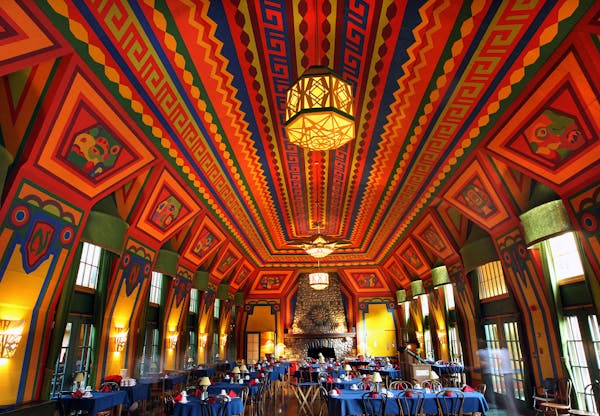As the owner of a Duluth music venue, Bob Monahan understands that many touring musicians need inexpensive places to sleep.
That was becoming less and less possible in his Lake Superior city, with many nearby hotels commanding a couple hundred dollars or more during peak tourism weekends.
"A lot of times [musicians] are sleeping on couches or floors or sharing a hotel room," Monahan said.
So he decided to do something about it. Hostel du Nord, a 36-bed hostel he created in the city's downtown, is set to open later this fall. Now Monahan, who owns the Red Herring Lounge, will be able to offer musicians a spot to crash for the night, a few blocks away.
The renovated three-story structure at 217 W. First St. — a building that once housed a jewelry store — will cater to travelers who don't mind giving up a little privacy in favor of less expense. The hostel will have 24 single and 12 double bunk beds, each enclosed with a curtain. There will be several shared bathrooms, a large kitchenette and a sauna and lounge areas.
Prices will range from $45 for a single bed on a weekday in the slow season up to about $95 for a double bed on a weekend in peak travel season. Guests will be able to book rooms through several websites including airbnb.com and hostelworld.com.
It's another niche being filled in Duluth's expanding lodging scene.
"I think anytime we have a new lodging option available to the visitor, it's serving a segment of our demographic that we haven't maybe been able to serve previously," said Anna Tanski, president and chief executive at Visit Duluth, the city's tourism arm.
In the past year and a half, lodging capacity has increased about 10 percent, Tanski said. Two new traditional hotels are open on Park Point, and two opened atop the city's hill near the Miller Hill Mall. Another hotel has opened across the lake in Superior, Wis.
A three-suite boutique hotel opened in early September near breweries and new restaurants in the revitalized Lincoln Park Craft District.
The Hotel Pikku, opened by Chelsy Whittington and her husband, Andy Matson, at 1923 W. Superior St. charges $110 to $150 per night and is reservable through Airbnb.
The suites, in a renovated building, have stylish furnishings, and two have kitchens. They are designed to feel a bit like a small apartment, said Whittington, who added that their goal is to keep prices reasonable.
"When I go places, I don't want to spend $250 a night," she said.
Tanski said city tourism leaders have started keeping closer track of lodging occupancy rates with weekly reports, though that doesn't take into account the rate of home rentals.
Lodging tax collections are at their highest point in history, but that's partly due to increased price, she said. Occupancy has been somewhat flat.
"It is definitely an issue for us when you try to find a balance between supply and demand," Tanski said. "The rates that our properties are able to command are significant, there's no question about it."
Tanski said there will be more lodging options springing up in the future. Tru by Hilton — marketed as vibrant and affordable — is now under construction.
"There's several in development and prospecting stages, too, so I don't think we've seen the end of it yet," she said. "The last time we saw this type of activity was about 20 years ago when Canal Park was really developed."
While more lodging rooms will make the peak travel season busier for all tourism businesses in Duluth, it will also make the slower times more challenging, Tanski said. It also will lead to market adjustments, she said — something the city has already seen a bit in the past few months.
"It's the visitors who definitely win," Tanski said. "Hopefully we'll see these rates be more competitive and more attractive to those visitors so they can afford to stay an extra night."
@pamlouwagie • 612-673-7102
Robbinsdale shelter-in-place alert accidentally sent countywide
Developer of St. Paul's Keg & Case food hall declares bankruptcy

Wildlife agency: Sturgeon won't go on endangered species list

Minnesotans interviewed to serve on Feeding Our Future trial

